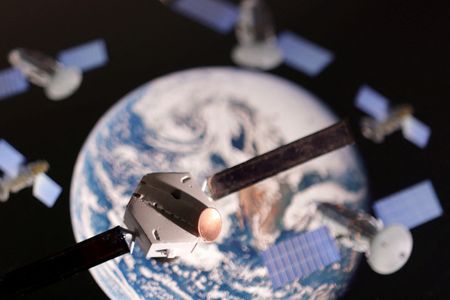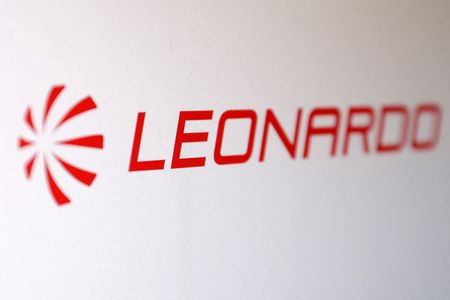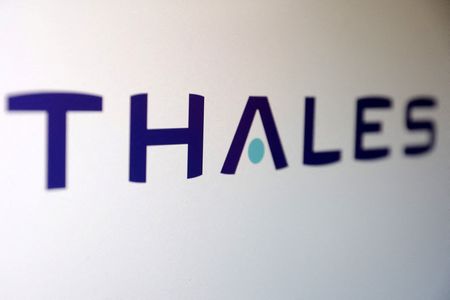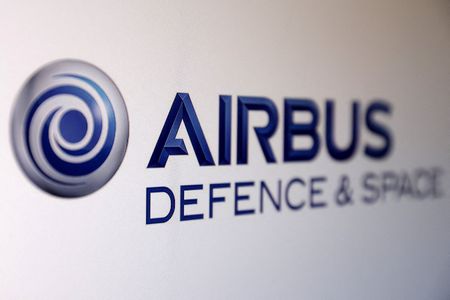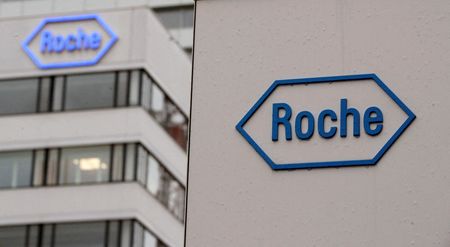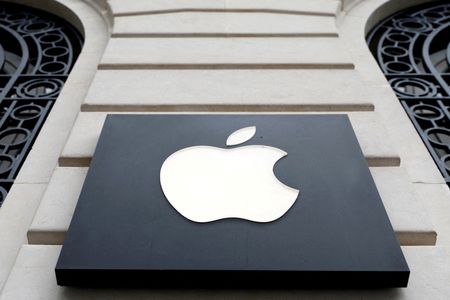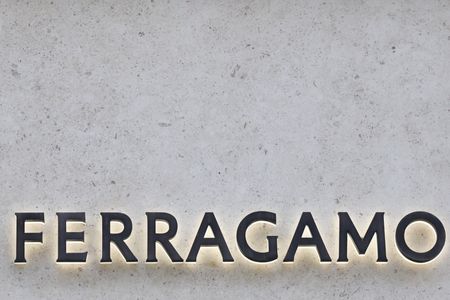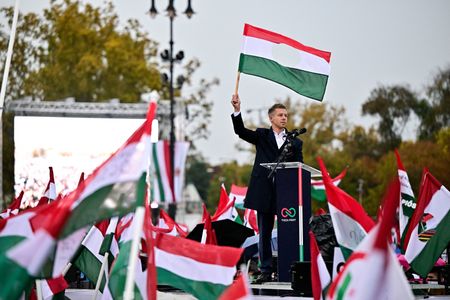By Giulia Segreti, Tim Hepher and Elvira Pollina
ROME/PARIS/LONDON (Reuters) -A deal to forge Europe’s answer to Elon Musk’s Starlink was reached on Thursday as the continent’s top space firms agreed to combine their satellite manufacturing and services businesses.
Marking the most ambitious tie-up of European aerospace assets since the creation of missiles maker MBDA in 2001, Airbus and Thales of France and Italy’s Leonardo will create a Toulouse-based venture to begin operations in 2027.
French Finance Minister Roland Lescure said the preliminary deal would “strengthen European sovereignty in a context of intense global competition”.
Italy’s Industry Minister Adolfo Urso said it supported the growth of European champions to compete globally.
VENTURE FACES GLOBAL COMPETITION
Code-named “Project Bromo”, talks between the three groups started last year.
Europe’s top satellite makers have long competed to build complex spacecraft in geostationary orbit but have been hit by the arrival of cheap, tiny satellites in low Earth orbit, notably the Starlink network built by Musk’s SpaceX.
Thales CFO Pascal Bouchiat, announcing quarterly sales that
included an initial contract for IRIS², Europe’s planned secure satellite network, hailed the new venture but warned on the competition ahead.
“This first development contract for IRIS² doesn’t take away the challenges that the European industry, in particular, is facing,” he told reporters.
The new combination will employ 25,000 people with revenue of 6.5 billion euros ($7.58 billion), based on 2024 figures.
It is expected to generate “mid-triple digit” millions of euros of synergies starting after five years, the companies said.
Shares in Leonardo rose almost 2% while Airbus and Thales were up less than 1% in afternoon trading.
“The initiative is certainly positive, as it creates a European leader capable of competing globally and improves the profitability of a business … that has struggled in recent years,” analysts at Italian investment bank Equita said in a note.
Shareholders now face up to two years of talks with governments, unions and the European Commission over the deal, which has implications for activities in Britain and Germany as well as Italy and France.
Italian unions requested more information and said the deal should help the country’s sector compete internationally.
Airbus and Thales have cut a combined 3,000 jobs following space losses. The three new partners made no mention of further cuts, but executives said the focus would now turn towards potential growth.
BALANCING PAYMENTS
The deal will combine activities of Thales Alenia Space and Telespazio – two joint ventures between Leonardo and Thales – as well as various Airbus space and digital businesses, the remaining space activities owned by Leonardo and Thales SESO.
Airbus will hold 35%, and Thales and Leonardo 32.5% each, the companies said.
Sources familiar with the deal said there would be balancing payments to reflect the value of the assets being contributed, with Airbus receiving some compensation, depending on how well the various activities are doing when the deal closes in 2027.
Previous attempts to combine have hit anti-trust hurdles.
“We expect, and will be vigilant, that the synergies created from efficiencies benefit us as a key customer of the new company,” said French satellite operator Eutelsat.
The deal could face objections from smaller German satellite maker OHB, which a French parliamentary committee has said could end up acquiring some of the newly combined assets.
OHB did not reply to a request for comment.
Agreement between the three companies – each of which has had periods of prickly relations in the past – was salvaged after sources familiar with the matter said the talks had hit obstacles over governance and valuation during the summer.
The companies gave few details regarding governance but executives pledged to avoid a system of rotating leadership or making appointments based on nationalities, approaches which have roiled the European aerospace industry, especially Airbus, in the past.
($1 = 0.8575 euros)
(Additional reporting by Mathieu Rosemain, Gianluca Lo Nostro, Dominique Vidalon, Angelo Amante, Enrico Sciacovelli and Amy-Jo Crowley; editing by Kim Coghill and Jason Neely)

